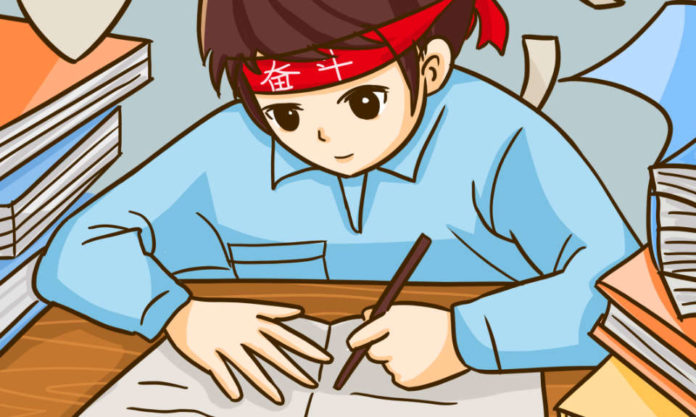Parents outraged at the Education Bureau’s recent implementation of a policy that significantly reduces the workload for primary, middle, and high school students, have given rise to the latest hot topic on the Chinese internet; “It’s hard to be parents in Nanjing”.
The uproar began when a Nanjing parent filed a complaint about the policy, calling it “absurd” and asking the Education Bureau why they are trying to interfere with their child’s learning process.
The new policy calls for no supplementary classes, no exams, no grade announcements and leaving school at 3 pm, while, somewhat incredulously, the local education department can also raid schools to look for any papers, extra-curricular tutoring materials, homework books, etc. in students’ bags.
In addition, the Education Bureau has decreed that the total amount and time of daily homework must be strictly controlled. Written homework must not be assigned to first and second grades, while the total amount of written homework for primary, middle and high school students must be limited to 1 hour, 1.5 hours and 2 hours, respectively.
- China Education Battles; Fake School Exposed in Nanjing
- Local Nanjing Schools Embrace ASAs; Build Student Wholesomeness
- 2019 Overseas Education Trends Revealed in White Paper
In the past 5 years, school time for primary and middle school students has increased significantly (20.9 percent and 42.9 percent, respectively), while in addition to homework assigned by teachers, extra-curricular tuition classes chosen by the parents or children themselves have become another burden for students. By comparison, students from Hong Kong, Macau, and Taiwan have about half the extra-curricular activities as their compatriots in Shanghai. In another example, Japan has one-third the extra-curricular classes of Shanghai.
Such severe burden-relief measures are not limited to Nanjing, but have also been rolled out by the education bureau in other cities in Jiangsu, such as Wuxi and Nantong, as well as many provincial cities across China, including Tianjin, Changsha, Qingdao, Xiamen, Ha’erbin and Beijing.
In the eyes of many parents, the result of the burden reduction is that the child’s academic performance is likely to deteriorate, and parents will have to spend extra time and money on children to make up for lessons that are not taught or taught less during their time at school.
According to Cao Huiying, Dean of the School of Educational Science, Nanjing Xiaozhuang University, the source of parental anxiety is actually the imbalance of high-quality educational resources. Therefore, parents constantly pressurise their children with extracurricular classes, interest classes, etc., to the point where the burden of students has far exceeded that they should bear at this age.
This is where the parents and the Education Bureau disagree.
Parents’ uneasiness is related to their traditional educational beliefs, with many only focusing on academic performance and paying less attention to cognitive growth and personality development.
- Ugly School Uniforms; Which Nanjing School Takes the Crown?
- Gaokao’s Top 5 Toughest Questions of All Time
- High School Pupils in Nanjing Launch Feminist Literary Magazine
On the other hand, the Education Bureau has recently taken a more modern outlook, shifting their focus from basic knowledge and skills to student core literacy. They argue that life is not a 100-metre race, but more like a marathon. Children’s physical and mental health and retaining a passion for learning and knowledge are the most important criteria for a good education.
They call for parents to maintain a more calm and rational mentality when it comes to their children’s education, while parents themselves should also come to a better understanding of the laws of education and growth.
In the past, parents always claimed that their children’s learning pressure was heavy and burdensome, and they asked the Ministry of Education for a reduction. Now parents have got what they wanted, but they are not happy about that either.









